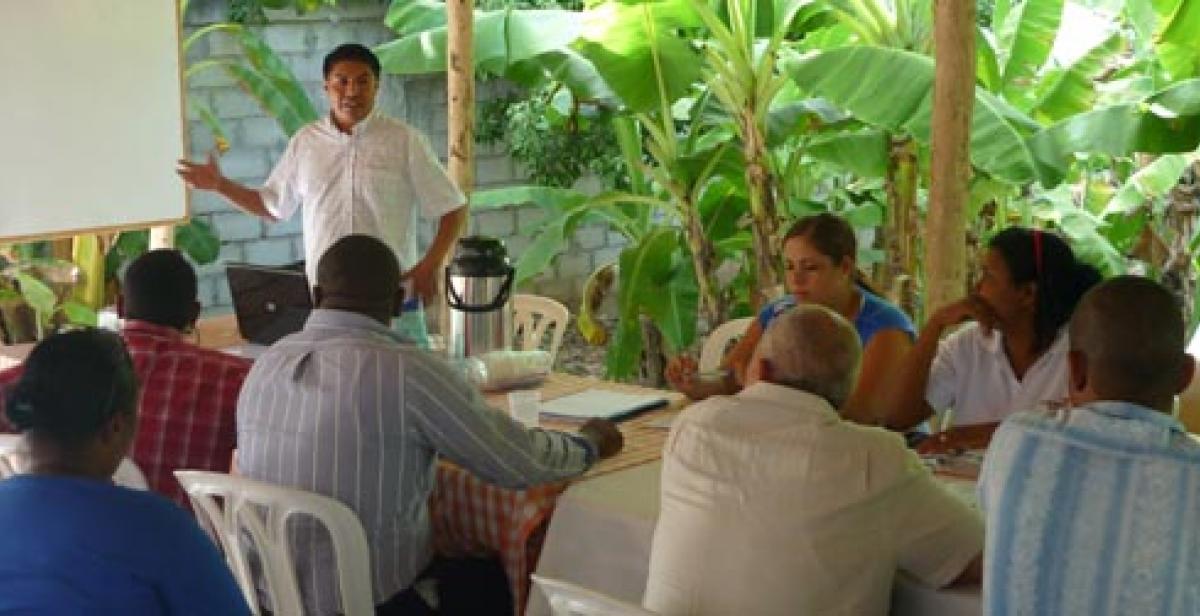Bolivar is a development worker from Guatemala, currently working as a Specialist in Municipal Development with the muncipalities of Jimaní, Postrer Rio and La Descubierta, in the Dominican Republic.
What is your work background?
I used to work in civil society capacity building in Guatemala. Before starting work as a development worker for Progressio I also completed an International Masters in Public Policy, Territorial Development, Governance and Integration Processes (in Italy and Spain).
I am currently working in the Dominican-Haitian border city of Jimaní with three municipalities, coordinating work with World Vision, and promoting development and good governance at the municipal level. Since the earthquake in January 2010 I have also been actively involved in coordinating humanitarian aid projects in Haiti and strengthening the work of the Ayuda a Haiti (Help Haiti) platform.
How would you describe yourself?
I have a great capacity for helping others, high levels of commitment to development, always innovating and promoting initiatives to improve the lives of people in the communities where we work.
What inspired you to become a Development Worker with Progressio?
I share Progressio’s ethos, vision and mission.
What made the biggest impact on you?
Living and working in a municipality (Villa Altagracia) where I can observe the richness of the nature and the sociability and kindness of the people.
What is your first memory of arriving in Dominican Republic?
I never imagined the place before I arrived as I didn’t want to get ahead of myself by looking at websites – I only thought about helping those who needed me, it was a personal challenge.
What do you enjoy most about your role?
Breaking paradigms, promoting change and new initiatives, developing work strategies and seeing how people, regardless of age, can make major changes in all aspects of their lives.
What has been the most exciting moment so far?
Empowering men and women to demand that their rights be recognised and to feel capable of changing things through participation mechanisms without any fear, as the agents and protagonists of their own development.
What has been the biggest lesson so far?
Everything is possible when you train and build the capacity of societies.
What is the biggest development challenge facing the Dominican Republic and the area in which you are working?
The eradication of political paternalism and corruption; changing the vision of the local (and national) authorities; and promoting the active participation of a critical, active and constructive citizenship.
If you could change one thing, what would that be?
I would change people’s mentalities, as here lies the change of attitude and behaviour that is needed to create a world with harmony and without any kind of discrimination.
What strikes you the most from the development worker model?
The links with the most deprived communities – through policies and strategies that empower the society to demand its rights – and influencing local governments to change their ways of governing, for the benefit of the society.
What is your favourite motto or saying?
The most important thing in the life of a development worker is putting the needs of the most disadvantaged before your own.
What advice would you give to someone who is thinking of becoming a development worker?
The best gift in the life of a development worker is helping to improve people’s social well-being. We need more development workers with a capacity for helping others and willingness to eradicate injustice in the world. If you have these characteristics, throw yourself into the world of development.
Where do you see yourself once your placement has ended?
I see myself in a world where I will continue to strengthen cognitive capacities, always promoting strategies and tools for development, so that people can become actors and protagonists of their own development.



